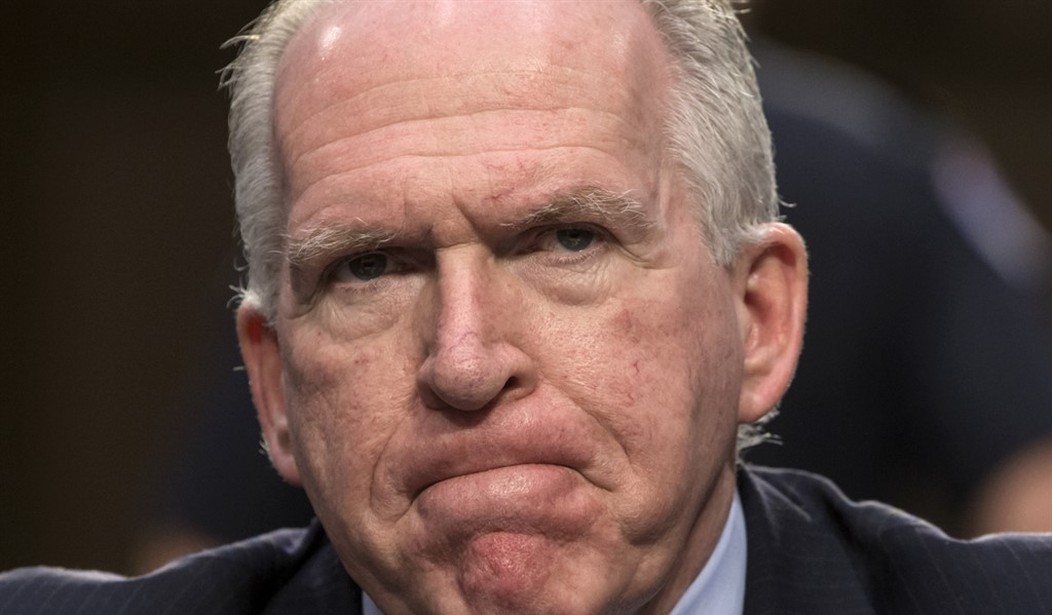How did the CIA lose its network of sources in China? According to the New York Times this weekend, China’s security apparatus uncovered more than a dozen covert sources for US intelligence from 2010-12, and either imprisoned or killed them. To this day, no one is sure whether the losses resulted from a mole within the CIA or outside hacking of CIA systems:
The Chinese government systematically dismantled C.I.A. spying operations in the country starting in 2010, killing or imprisoning more than a dozen sources over two years and crippling intelligence gathering there for years afterward.
Current and former American officials described the intelligence breach as one of the worst in decades. It set off a scramble in Washington’s intelligence and law enforcement agencies to contain the fallout, but investigators were bitterly divided over the cause. Some were convinced that a mole within the C.I.A. had betrayed the United States. Others believed that the Chinese had hacked the covert system the C.I.A. used to communicate with its foreign sources. Years later, that debate remains unresolved.
But there was no disagreement about the damage. From the final weeks of 2010 through the end of 2012, according to former American officials, the Chinese killed at least a dozen of the C.I.A.’s sources. According to three of the officials, one was shot in front of his colleagues in the courtyard of a government building — a message to others who might have been working for the C.I.A.
For those keeping score, the hacking of the Office of Personnel Management computer systems would not have played a part in this — at least not as we understand the OPM hack at the moment, anyway. That took place in 2014, and didn’t get discovered for a year, but that puts it two years after China began rounding up American sources. The OPM data exposed government payroll data, not overseas intelligence sources, so even if it started earlier it wouldn’t have been the hack that exposed these operations.
Even so, the success of China’s hacking ventures have to make that a significant possibility for their penetration in this earlier case. If true, that would have ramifications that go beyond those sources … but that would also be true of a mole as well. The difference is that communications systems and computer networks can be hardened (in OPM’s case by hiring its own IT group rather than outsource the tasks to firms with connections to Beijing’s government).
If it’s a mole, though, it will require a much more difficult effort to identify the culprit and get evidence that will ensure his/her conviction. Mole hunts can become terribly destructive, and can take years to accomplish — all while the mole can monitor efforts to harden communications and computer systems. In the Robert Hanssen case, the FBI put Hanssen in charge of those efforts for years. In this case, the mole hunt did narrow down to one person, but the suspect fled the US and the FBI and CIA still don’t have enough evidence to make a case.
It’s curious why this failure is just now coming to light. Perhaps the previous administration wanted to keep a lid on it while the mole hunt/comms hardening efforts were under way, which would be a reasonable approach as long as the Congressional intel committees were kept abreast of these failures. But between Wikileaks, OPM, and other penetrations, it’s also difficult to avoid a conclusion that the Obama administration might have been embarrassed to add yet another security failure to become public.
Needless to say, China finds all of this reason to celebrate. Their state-run newspaper Global Times didn’t disappoint in that regard, even if they ridiculed the report itself:
If this article is telling the truth, we would like to applaud China’s anti-espionage activities. Not only was the CIA’s spy network dismantled, but Washington had no idea what happened and which part of the spy network had gone wrong. It can be taken as a sweeping victory. Perhaps it means even if the CIA makes efforts to rebuild its spy network in China, it could face the same result. …
It is well known that the US is the world’s largest intelligence-gatherer. It not only defines the moral standards of spies based its own national interests, but also tries to make these standards universal. The NYT report seems to be a white-knuckle beginning for a new version of Mission: Impossible: American spies who worked in China disappeared, and some of them died miserably. However, no one knew the reason for their deaths. The journalists who wrote the report must have been deeply addicted to the franchise.
The CIA has apparently increased its espionage activities in China, which will inevitably lead to China simultaneously strengthening its counterintelligence efforts. No matter how Americans see it, international law will affirm that China’s anti-espionage activities are just and legal, while the CIA’s spying is illegitimate.
When the US media is keen on hyping up “catching Chinese spies,” they should forego their moral narcissism when reporting CIA espionage in China. It’s absurd that under their description, the US is always the noble side whether it is catching spies or sending spies.
Well, there’s plenty of hypocrisy to go around on this point. China hasn’t exactly been shy about its hacking activities, and managed quite a few astounding successes over the last few years. It’s been a long time since anyone asserted a nobility in the difference between US intelligence and other operations, but at the same time China, North Korea, Iran, and Russia keep proving its necessity.








Join the conversation as a VIP Member